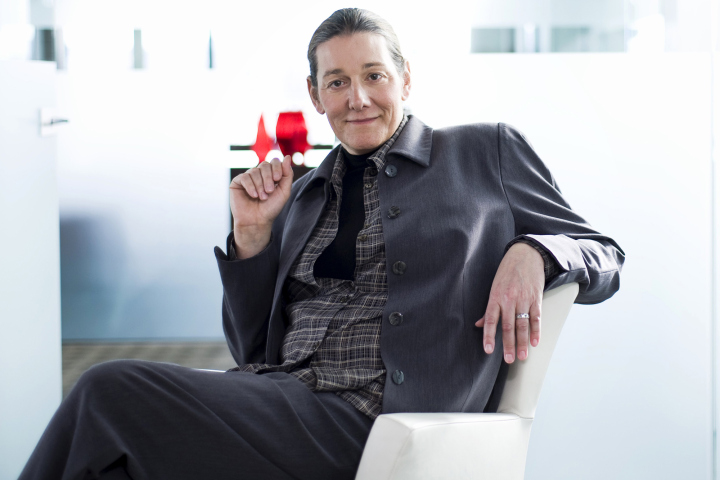Highest-paid female CEO used to be a man
By Nicole Goodkind
Yahoo Finance
Martine Rothblatt, a 59 year old entrepreneur and space lawyer, is the highest paid female executive in America. She made $38 million last year as the CEO of United Therapeutics (UTHR); a $6 billion biotech firm she founded to find a treatment for pulmonary hypertension after her daughter was diagnosed with the disease.
Rothblatt’s compensation is based largely on stock performance. Last year, her company received FDA approval for a medicine they had been working on for 10 years. The stock more than doubled and Rothblatt’s compensation rose by a multiple of four. “I think this [pay structure] is in the best interest of the shareholders,” she says. “There’s a mantra about corporate governance about pay-for-performance so I said ‘okay I’ll take the risk that 100% of my bonus compensation will be based upon stock market performance.’”
Last year, just $992,678 of Rothblatt’s total compensation was from her base salary. She earned another $36,097,326 in option awards and $1,102,907 in non-equity incentive plan compensation. In 2012, Rothblatt made $8 million in total compensation.
The Gender Pay Gap
Before United Therapeutics, Martine helped found both GeoStar, a satellite based navigation system and Sirius Radio (SIRI), a satellite radio service. Martine Rothblatt was also a man until 1994 when she underwent sex reassignment surgery at the age of 40, so she has a unique perspective on gender in the workplace.
“One of the unique insights I have is a huge appreciation for all of the privileges I received as a man,” she says. “As the oldest son I was expected to do great things… but so many times it’s the oldest son that gets that encouragement and not the oldest daughter. Those things kind of percolate and when all is said and done, only 11 of [the 200 highest paid] CEOs are women because of that.” Rothblatt doesn’t think people believe that men are intrinsically smarter than women, but believes that there’s a “pervasive hangover from thousands of years of patriarchy,” in the workplace.
Rothblatt brings this perspective to the gender pay gap. Women currently make 78.3 cents for every dollar men make at the same professional level. Among female CEOs, the median pay is $1.6 million less than their male peers. Rothblatt believes this stems from a legacy of discrimination against women. “It’s been less than 100 years since we’ve even had the vote,” she says. “That’s been such a recent snippet of time.”
Rothblatt is optimistic, based on recent strides, that things will continue to get better for women. She points to Marissa Mayer, CEO of Yahoo (our parent company) as an example of those strides.
Equal pay for equal work has to begin with education, says Rothblatt. “We need to start by educating our kids and society as a whole that a person’s productivity and what they accomplish should not be judged differently because they are female or male.”
Motherhood penalty, fatherhood bonus
A recent study showed that having children helped the careers of men, but greatly hindered women’s, an effect referred to as the “motherhood penalty and fatherhood bonus.” Although 70% of women with children work and 40% of women are the primary breadwinners for their families, women received an average pay decrease of 4% when they had children. Men received an average 6% pay bump.
“It’s just due to a complete misunderstanding and lack of appreciation for the 360 degree skills that go into raising a child,” says Rothblatt. “I’d say that if you can raise a child you can raise a company.”
CEO pay
Gender aside, there has been controversy about the high rate of pay among CEOs in America. CEOs now earn 331 times as much pay as the average worker.
At United Therapeutics every employee in the company holds shares in the stock. Because of that, one-fifth of Rothblatt’s employees have become millionaires. More companies need to give workers a piece of the pie, she says. “I think it should be universal… everybody should realize that the person at the front desk or the person at the C-office is making a contribution to the company, and the more you make it feel like it’s everybody’s company the more successful you’ll be.”
Martine Rothblatt is the author of Virtually Human, out this month.
